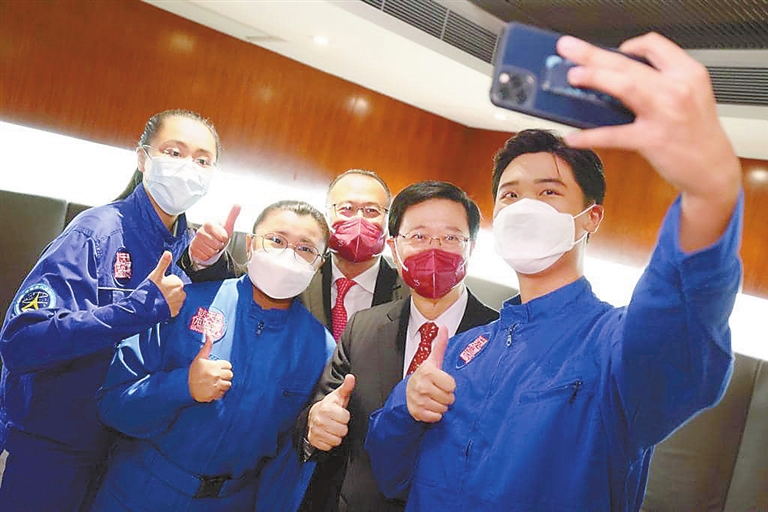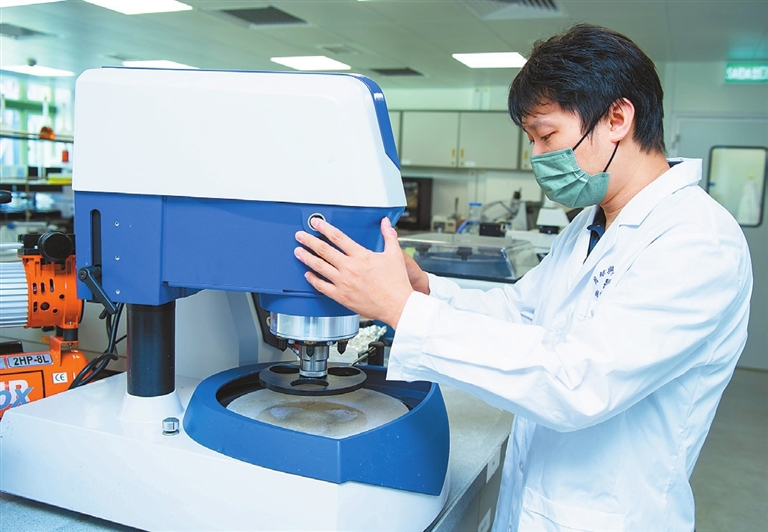

SCIENCE workers in Hong Kong and Macao special administrative regions have responded actively to payload specialist selection for China’s manned space program. China is selecting prospective astronauts in the fourth round. The selection includes 12-14 reserve astronauts and two or more candidates to become payload specialists. This is the first time that the country is considering candidates from the two special administrative regions. The preliminary screenings in Hong Kong and Macao will select specialists who will undertake scientific research and experiments in space, operate the space laboratory equipment and manage daily operations of the space station with other astronauts in the future space missions. The whole selection process is expected to last a year and a half. Those who pass the selection shortlist will undergo two and half years of training at the China Astronaut Research and Training Center in Beijing. In Hong Kong, the preliminary screening runs until Oct. 27 and candidates should submit their application forms through designated universities, research centers and other institutions. The candidates must be Chinese nationals who are permanent residents of the HKSAR, aged between 30 and 45, with a doctoral degree in a relevant field and at least three years of professional working experience in a relevant discipline. Andy Kong, a research assistant with the Laboratory for Space Research (LSR) of the University of Hong Kong, was over the moon at the news of recruiting payload specialists. A Ph.D. candidate in computer science, Kong said he would speed up completing his graduation thesis to be able to qualify. Quentin Parker, director of the LSR, said many students in the lab were very excited to hear the news. “Even though some young people are not old enough yet for this, they see it as an opportunity,” he said. “With the integration of Hong Kong into the major science endeavors of the country, scientists and engineers in Hong Kong are looking at all the amazing opportunities, not only in the Greater Bay Area but also on the mainland,” he said. Denis Yip, chief executive officer of the Hong Kong Applied Science and Technology Research Institute, said the institute has confirmed the applications of more than 10 qualified candidates, most of whom are Ph.D. holders in electrical engineering and physics. “If a Hong Kong scientist got the job, that will be something that will go down in history,” he said. At present, there are three universities in Hong Kong offering undergraduate and postgraduate programs to train aerospace talent, with no less than 100 graduates each year focusing on aerospace technology development. HKSAR Chief Executive John Lee hailed the payload specialist recruitment in Hong Kong, saying it was of “great historical significance.” It shows that the country encourages and welcomes Hong Kong compatriots to contribute to the country’s development, and demonstrates the country’s confidence in Hong Kong’s level of scientific research and development as well as its care for the development of Hong Kong’s young people, he said. In Macao, the preliminary screening runs until Oct. 17. The target candidates are required to be healthy Chinese nationals aged between 30 and 45 who are permanent residents of the Macao SAR with a doctoral degree and have engaged themselves for at least three years in the research fields of medicine, biology, psychology, physics or chemistry, mechanical or electrical engineering, astronomy or other disciplines. William Chong Hang Chao, associate professor at the Faculty of Health Sciences of University of Macao (UM), has submitted his application for the preliminary screening. Chao said that he wishes to carry out research on the influences of a gravity-free environment upon the body functions and histocyte of organisms so as to lay the foundation for biological research on future space travel. Pui In Mak, acting director of the State Key Laboratory of Analog and Mixed-Signal VLSI at UM, said he is interested in finding out how to improve broadband communication to make high-speed wireless communication between the space station and the ground smoother. Sio Weng Hong, lecturer at the Institute of Applied Physics and Materials Engineering at UM, said he would like to research influences of space radiation on the physical properties of semiconductor materials by collecting, processing and analyzing data from experiments in space. Tang Chi Pui, associate professor at the State Key Laboratory of Lunar and Planetary Sciences in Macao University of Science and Technology (MUST), said they used to feel the chance was too slim for them to work in space. “Now, the payload specialist selection makes us better oriented and more motivated,” said Tang, whose lab is China’s first State key laboratory in the field of astronomy and planetary sciences and has taken part in major national deep space exploration projects. Hailing the selection as a historic opportunity for Macao, Joseph Hun-wei Lee, president of the MUST, said Macao should increase investments on science and research, further enhance cooperation with the mainland in this regard and better tap Macao’s advantages as an international platform to train more scientists and engineers. He added that the MUST hopes to engage in cross-disciplinary space research such as stem cell experiments, biological research of microgravity and research on materials. In 2005, the MUST started to participate in data analysis and research of China’s lunar exploration program, later carried out wide cooperation with national science and research institutes. (Xinhua) | 
